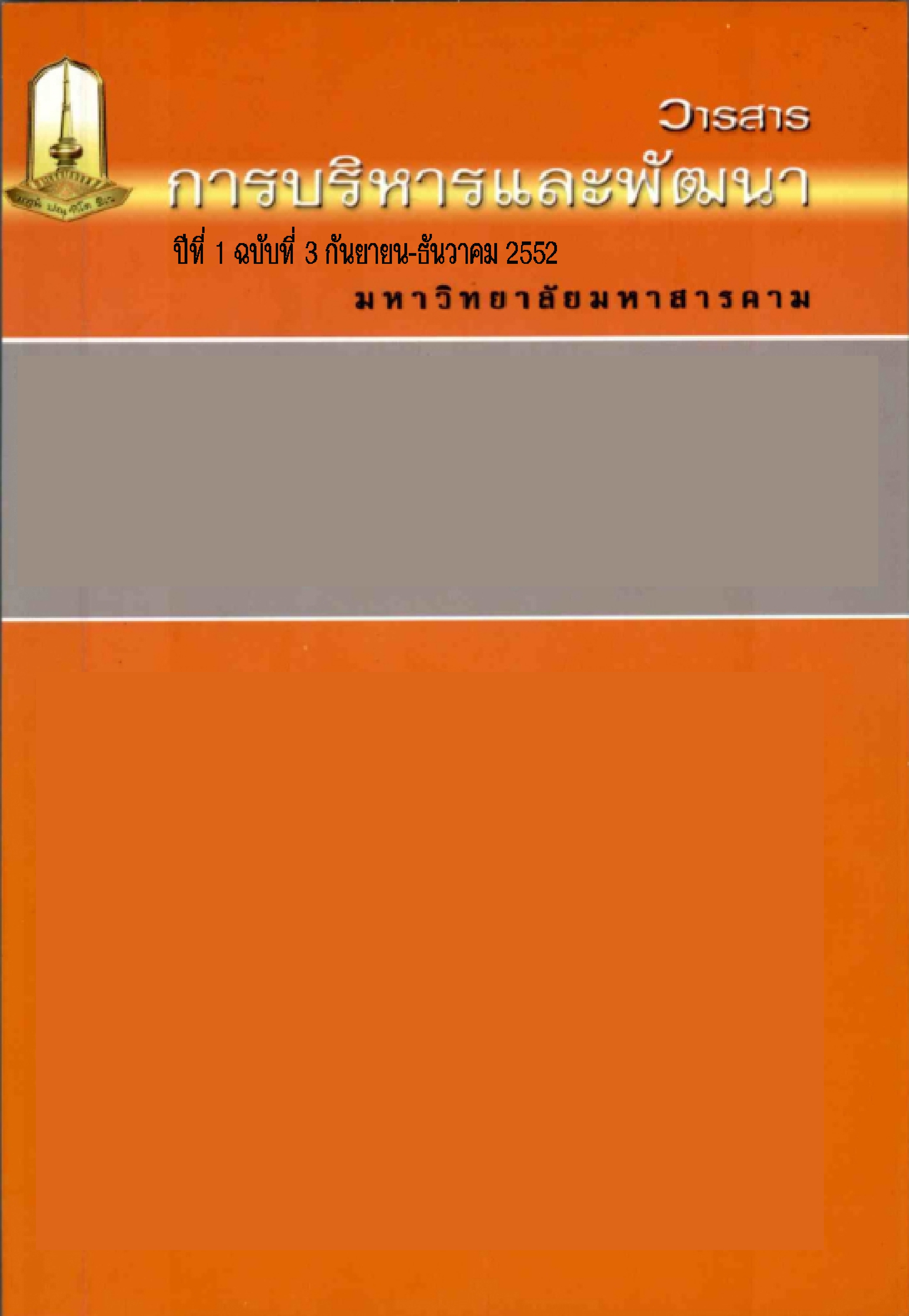E-Learning Effects on Learning Quality : a Case Study of Iranian Students
Main Article Content
บทคัดย่อ
Today our life has got a new dimension which called technological dimension. Technology has special effects on our life; it plays a very meaningful role in all countries, in this paper we intend to analyze e-learning effects and
its advantages in the field of education in third world countries specially in Iran
.the other purpose of this study is evaluating its educational effects to improve learning quality in Iran. Learning via the Internet combined with multimedia platforms can satisfy the demand for alternative forms of education.
Downloads
Article Details
เอกสารอ้างอิง
Nichols, M. (2008). E-Learning in context http://www.about-elearning.com/ definition-of-elearning
Lau, M.P., (2002), ‘Online Teaching & Learning’, Nanyang SiangPau’s New Century, 12 July.
Sambrook, S., (2003), ‘E-learning in Small Organizations’, Education + Training, vol.45, no.8/9, pp. 506-516.
Schank, R.C., (2002), Designing World Class ELearning, 1 st ed, McGraw Hill, USA.
Wild, R.H., Griggs, K.A. & Downing, T, (2002), ‘A framework for e-learning as a tool for knowledge management’, Industrial Management & Data Systems, vol.102, no.7, pp.371-380.
Bleimann, U., (2004), ‘Atlantis University: a new pedagogical approach beyond e-learning’, Campus-wide Information Systems, vol.21, no.5, pp.191-195.
Evans, C. & Fan, J.P., (2002), ‘Lifelong Learning through the Virtual University’, Campus-Wide Information Systems, vol.19, no.4, pp.127-134. HYPERLINK “http://akoaotearoa.ac.nz/sites/default/files/ng/group661/n877- 1---e-learning-in-context.pdf” http://akoaotearoa.ac.nz/sites/default/ files/ng/group661/n877-1---e-learning-in-context.pdf HYPERLINK “http://www.articulate.com/rapiddissecting-an-e-learningcourse-will” http://www.articulate.com/rapiddissecting-an-e-learningcourse-will
Vavoula, G. (2004). KLeOS: A knowledge and learning organisation system in support of lifelong learning. PhD Thesis. University of Birmingham, UK.
Scanlon, E., Jones, A., & Waycott, J. (2005). Mobile technologies: prospects for their use in learning in Informal science setting.
Horton, W., (2001), ‘Leading e-Learning’, American Society for Training and Development, [online accessed 25 April 2003] http://www.elearninggurus.com/articles.html
Lytras, M.D., Pouloudi, A. & Poulymenakou, A.,(2002),‘Knowledge management convergence – expanding learning frontiers’, Journal of Knowledge Management, vol.6, no.1,pp.40-51
Hamid, A.A., (2002), ‘e-Learning-Is it the “e” or the learning that matters’, Internet and Higher Education, vol.4, pp.311-316.
Honey, P., (2001), ‘E-learning: a performance appraisal and some suggestions for improvement’, The Learning Organization , vol.8, no.5, pp.200-202.
Kandies, J., & Stern, M. B. (1999). Weaving the Web into the classroom: An evolution of Web enhanced instruction. Paper presented at the Teacher Education International Conference, San Antonio, TX. (ERIC Document Reproduction Service No. ED 432270).
Wernet, S., Olliges, R., & Delicath, T. (2000). Post course evaluations of WebCT (Web Course Tools) classes by social work students. Research on Social Work Practice, 10(4), 487-504.
Wernet, S., Olliges, R., & Delicath, T. (2000). Post course evaluations of WebCT (Web Course Tools) classes by social work students. Research on Social Work Practice, 10(4), 487-504.
Derouza, E., & Fleming, M. (2003). A comparison of in class quizzes vs. online quizzes on student exam performance. Journal of Computing in Higher Education, 14, 121-134.
Wernet, S., Olliges, R., & Delicath, T. (2000). Post course evaluations of WebCT (Web Course Tools) classes by social work students. Research on Social Work Practice, 10(4), 487-504.
Derouza, E., & Fleming, M. (2003). A comparison of in class quizzes vs. online quizzes on student exam performance. Journal of Computing in Higher Education, 14, 121-134.
Derouza, E., & Fleming, M. (2003). A comparison of in class quizzes vs. online quizzes on student exam performance. Journal of Computing in Higher Education, 14, 121-134.
Connolly, T., & Stansfield, M. (2007). Developing constructivist learning environments to enhance e-learning.In N. Buzzetto-More, Principles of effective online teaching (pp. 19-38). Santa Rosa: CA, Informing Science Press. HYPERLINK “http:// en.wikipedia.org/wiki/E-learning April 2008” http://en.wikipedia.org/ wiki/E-learning April 2008
Global Industry Analysts, Inc. E-learning market survey, 2007.


